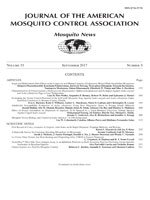The invasive mosquito, Aedes albopictus, found in Spain since 2004, is a competent vector of yellow fever, Zika, dengue, and chikungunya viruses among other diseases. Although controversial, the use of adulticiding is a relevant tool for vector control and could be crucial for the management of any possible outbreak of imported diseases. We present the 1st study in Spain on the susceptibility of field populations from Barcelona, Peñíscola, Castellón, and Mallorca of Ae. albopictus to several pyrethroids using either bioassays under the World Health Organization methodology and biochemical tests. In the bioassays, the discriminating concentrations were calculated using a local, susceptible laboratory strain. Different susceptibility levels were found for some combinations of populations and products. The biochemical tests carried out by enzymatic analysis supported these results, showing an overexpression of glutathione S-transferase activity in 1 population.
How to translate text using browser tools
1 September 2017
First Data on Resistance to Pyrethroids in Wild Populations of Aedes albopictus from Spain
Mikel Bengoa,
Roger Eritja,
Sarah Delacour,
Miguel Ángel Miranda,
Antonio Sureda,
Javier Lucientes
ACCESS THE FULL ARTICLE
It is not available for individual sale.
This article is only available to subscribers.
It is not available for individual sale.
It is not available for individual sale.
bioassay
biochemical assay
discriminating concentration
pyrethroids
resistance





